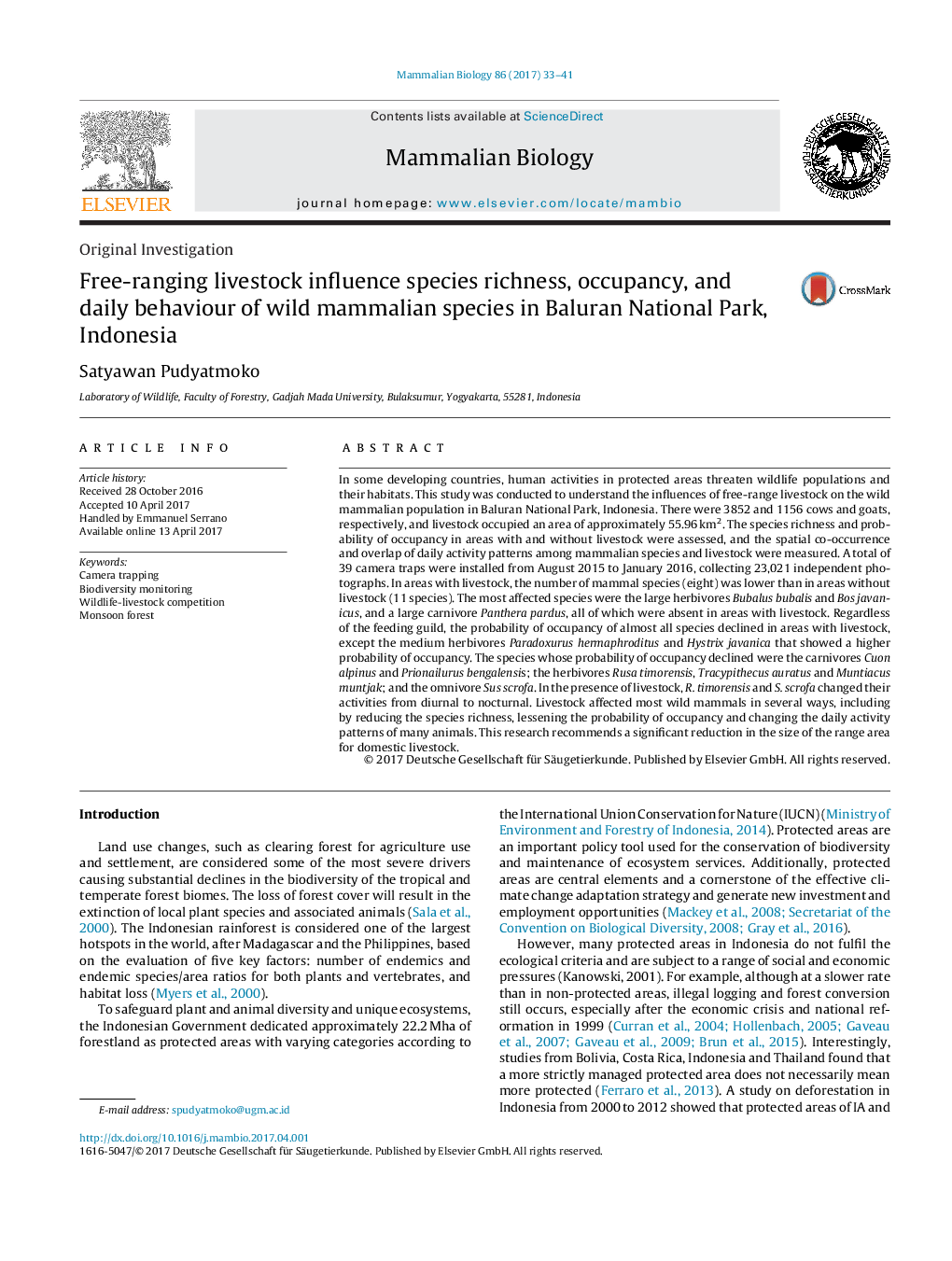| کد مقاله | کد نشریه | سال انتشار | مقاله انگلیسی | نسخه تمام متن |
|---|---|---|---|---|
| 5533754 | 1550461 | 2017 | 9 صفحه PDF | دانلود رایگان |
In some developing countries, human activities in protected areas threaten wildlife populations and their habitats. This study was conducted to understand the influences of free-range livestock on the wild mammalian population in Baluran National Park, Indonesia. There were 3852 and 1156 cows and goats, respectively, and livestock occupied an area of approximately 55.96Â km2. The species richness and probability of occupancy in areas with and without livestock were assessed, and the spatial co-occurrence and overlap of daily activity patterns among mammalian species and livestock were measured. A total of 39 camera traps were installed from August 2015 to January 2016, collecting 23,021 independent photographs. In areas with livestock, the number of mammal species (eight) was lower than in areas without livestock (11 species). The most affected species were the large herbivores Bubalus bubalis and Bos javanicus, and a large carnivore Panthera pardus, all of which were absent in areas with livestock. Regardless of the feeding guild, the probability of occupancy of almost all species declined in areas with livestock, except the medium herbivores Paradoxurus hermaphroditus and Hystrix javanica that showed a higher probability of occupancy. The species whose probability of occupancy declined were the carnivores Cuon alpinus and Prionailurus bengalensis; the herbivores Rusa timorensis, Tracypithecus auratus and Muntiacus muntjak; and the omnivore Sus scrofa. In the presence of livestock, R. timorensis and S. scrofa changed their activities from diurnal to nocturnal. Livestock affected most wild mammals in several ways, including by reducing the species richness, lessening the probability of occupancy and changing the daily activity patterns of many animals. This research recommends a significant reduction in the size of the range area for domestic livestock.
Journal: Mammalian Biology - Zeitschrift für Säugetierkunde - Volume 86, September 2017, Pages 33-41
